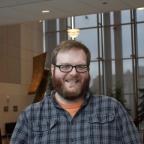Upcoming Webinar: Nuclear–Electronic Orbital ab initio Wave Function Methods in Q-Chem
July 17th, 2025

Don't miss our next Q-Chem webinar, Nuclear–Electronic Orbital ab initio Wave Function Methods in Q-Chem, happening on July 17th at 10AM PDT. Register here!
Nuclear quantum effects such as zero-point energy and hydrogen tunneling play important roles in chemical and biological processes. The nuclear–electronic orbital (NEO) approach incorporates these effects directly into electronic structure calculations by treating select nuclei, typically hydrogen atoms, on the same level of theory as the electrons. Treatment within the framework of density functional theory for the ground state and with time-dependent DFT for excited states has been previously presented in Q-Chem webinars by Mathew Chow and Coraline Tao.
In this webinar, Jonathan Fetherolf (Princeton University) will discuss developments in ab initio wave function methods for NEO. His talk will highlight progress in NEO coupled cluster (NEO-CC) theory, which provides a path to "gold standard" reference calculations that can accurately capture ground-state properties such as nuclear delocalization and anharmonic zero-point energy. In addition to covering NEO-CC with singles and doubles, he will present results for more approximate methods such as orbital-optimized MP2 and second-order coupled cluster (CC2). Excited states and multireference problems pose additional challenges for NEO methods. He will discuss the recently developed NEO multireference configuration interaction (NEO-MRCI), which can produce high-quality excitation energies and tunneling probabilities for such systems.